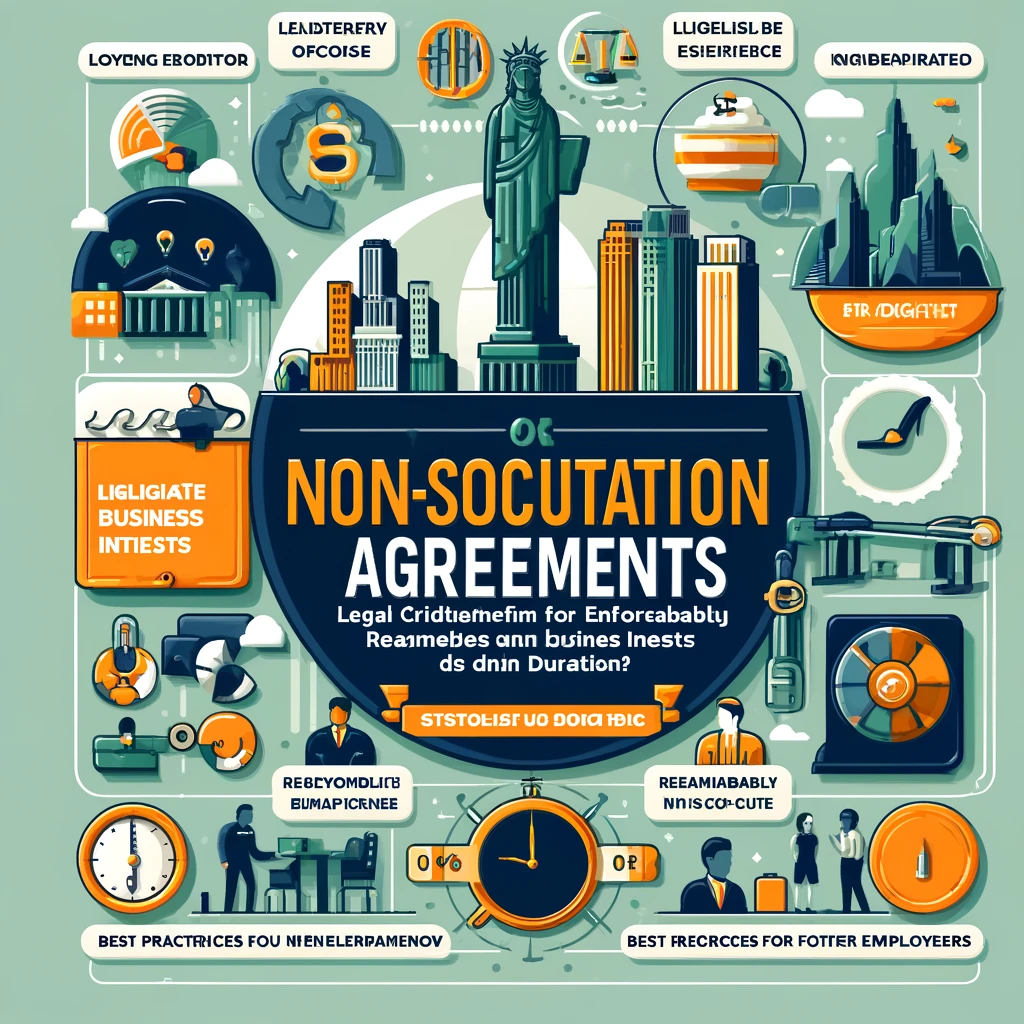Deciphering Non-Solicitation Agreements in New York: A Legal Guide
In the bustling business environment of New York, non-solicitation agreements are pivotal legal tools used by companies to safeguard their competitive advantages. These agreements prevent former employees from soliciting business clients, customers, or other employees after the termination of their employment. This in-depth guide explores the nuances of non-solicitation agreements in New York, providing critical insights into their legal framework, enforceability criteria, and practical considerations for drafting effective agreements, enriched with authoritative .gov, .edu, and Wikipedia links for enhanced credibility.

The Legal Landscape of Non-Solicitation Agreements in New York
Non-solicitation agreements in New York are governed by a complex interplay of case law and statutory provisions. The enforceability of these agreements hinges on their reasonableness and the protection of legitimate business interests. New York courts have established several key principles that guide the enforcement of non-solicitation agreements:
Legitimate Business Interest: The agreement must protect a legitimate business interest, such as trade secrets, confidential information, or unique customer relationships (New York State Unified Court System).
Reasonableness: The scope, duration, and geographical limitations of the agreement must be reasonable, ensuring that they do not impose undue hardship on the employee or harm the public interest.
Consideration: Adequate consideration must be provided to the employee for the non-solicitation agreement to be enforceable. This could include employment, promotion, or other tangible benefits.
For an in-depth understanding of New York's legal framework regarding these agreements, resources like Cornell Law School's Legal Information Institute offer valuable insights.
Crafting Enforceable Non-Solicitation Agreements in New York
Key Components
An effective non-solicitation agreement in New York should clearly define the following:
Scope of Solicitation: Specify what constitutes solicitation and the types of clients, customers, or employees subject to the agreement.
Duration: Establish a reasonable time frame for the restrictions, typically not exceeding one to two years.
Geographical Limitations: If applicable, clearly delineate the geographical area covered by the agreement.
Consideration: Detail the consideration provided to the employee in exchange for their commitment to the agreement.
Best Practices for Employers
Tailor Agreements to Individual Roles: Customize non-solicitation agreements based on the employee's role and access to sensitive information.
Review and Update Agreements Regularly: Laws and business needs evolve; periodically review and update non-solicitation agreements to ensure they remain enforceable and relevant.
Consult Legal Expertise: Work with legal professionals experienced in New York employment law to draft and review non-solicitation agreements, ensuring compliance with current legal standards.
Considerations for Employees
Understand Your Rights and Obligations: Fully comprehend the terms of the non-solicitation agreement and its implications for your future employment opportunities.
Negotiate Fair Terms: Engage in negotiations to secure reasonable terms, particularly concerning the duration and scope of the agreement.
Seek Legal Advice: Before signing a non-solicitation agreement, consult with an attorney to understand its enforceability and potential impact on your career.

Create & Review Your Contracts 10x Quality and Ease
Lawyer-level AI handles all your contract needs, with real lawyers providing safeguarding support

Navigating Disputes and Enforcement
Disputes over non-solicitation agreements in New York often arise from disagreements over the reasonableness of the agreement's terms or its impact on an employee's ability to work. In such cases, New York courts will scrutinize the agreement to ensure it meets the established criteria for enforceability. Both parties can benefit from mediation or arbitration to resolve disputes, although litigation may be necessary for more contentious issues.
Conclusion
Non-solicitation agreements serve as essential instruments for New York businesses to protect their proprietary interests. By adhering to New York's legal standards and employing best practices for drafting and negotiating these agreements, employers and employees can navigate the complexities of non-solicitation clauses effectively. For further exploration, consulting with legal professionals and accessing resources from Wikipedia and New York's official government website can provide additional insights and guidance.

